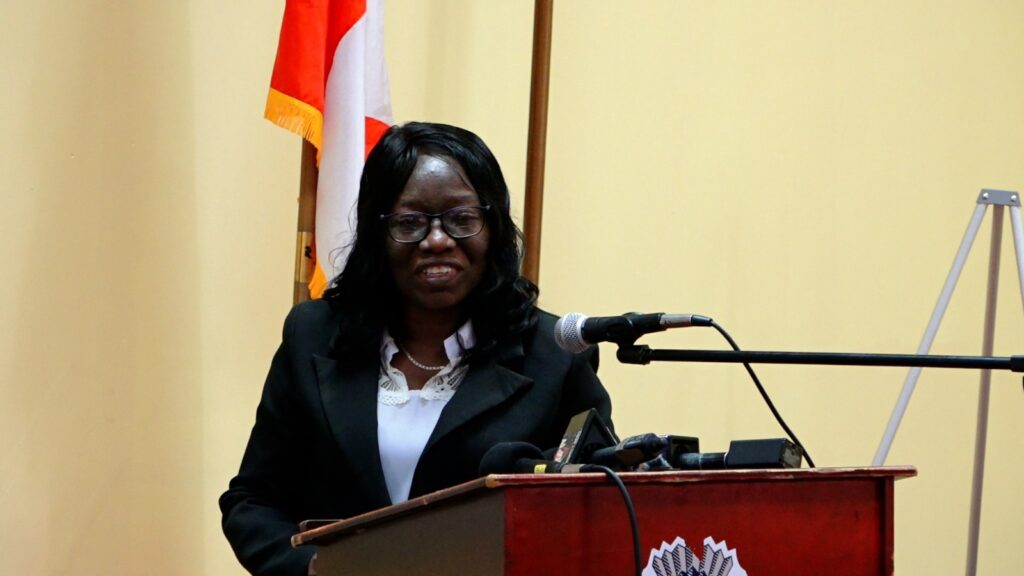
Acting Chief Magistrate, Faith Mc Gusty has issued a call on Guyanese to embrace Restorative Justice, as the second cohort of Restorative Justice officers commenced training under the Restorative Justice Practitioners Training Programme.
While it does not apply to capital offenses involving violence or sexual offences, including those involving children, Restorative Justice helps to reduce the number of cases before the Courts, and ultimately the prison population.
It is an approach to conflict resolution that places tremendous focus on repairing the harm caused by wrongdoing through dialogue.
“It shifts the focus from punishment to healing, from retribution to restoration. In doing so, it brings into the heart of the criminal justice system a much-needed human element – an opportunity for victims to be heard, for offenders to take meaningful accountability and for communities to rebuild trust,” the Acting Chief Magistrate explained.
Magistrate Mc Gusty said in Guyana the implementation of Restorative Justice is still in its early stages but already, it has been changing lives and communities for the better.
She said the Restorative Justice Officers have an important role to play in shaping the culture of justice in the country, with education being critical to the process.
“Too many citizens, even some within our legal and law enforcement communities still view justice only through the lens of courts, trials and punishment. Restorative Justice offers a different vision, one that requires understanding, openness and community engagement. For this approach to take root and grow, we need to actively educate the public, victims, offenders and professionals alike about what Restorative Justice is, and what it is not,” she said.
The Canadian High Commissioner to Guyana, Sebastien Sigouin said Restorative Justice not only helps to improve the Justice System, but also the communities.

“It is not always easy, it is not always comfortable but through dialogue between the victims, the offenders and the community, it is often the only way to find lasting solution. It is the only way for the communities to heal, to move on and to rebuild,” the Canadian High Commissioner said,
He said in Canada, Restorative Justice has been practiced and embraced.
“It is a concept that has been used around the world and in Canada, it is a concept to resolve dispute that we have been using for decades. In a previous life, I used to work at the Canadian Human Rights Commission and this was a process that was really central to our efforts to address human rights violation and discrimination cases in Canada. And I came out of that experience as a strong believer in these restorative justice process,” the Canadian High Commissioner said.
The Restorative Justice Practitioners Training Programme was launched here in 2024 by the Government in partnership with the Canada-CARICOM Expert Deployment Mechanism (CCEDM).
In 2024, more than 200 persons were trained in Restorative Justice, including lawyers, and magistrates, teachers, public service workers, community, and religious leaders and indigenous leaders.
On the legal front, the country brought the Restorative Justice Act into force in 2022.













You must be logged in to post a comment Login